Saad Jbabdi
Learning Label Refinement and Threshold Adjustment for Imbalanced Semi-Supervised Learning
Jul 07, 2024
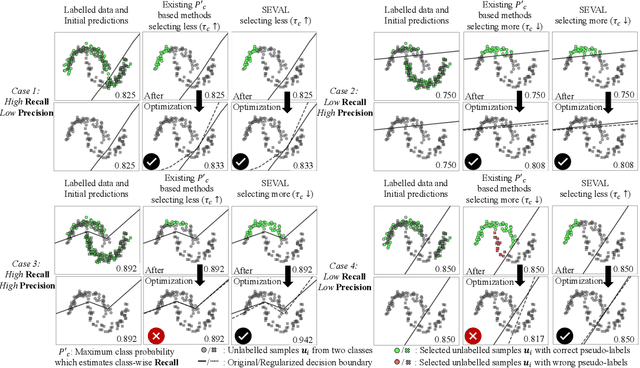
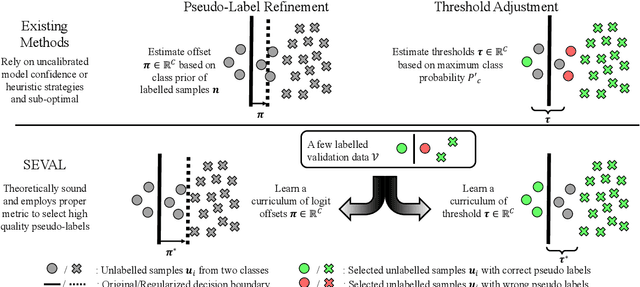
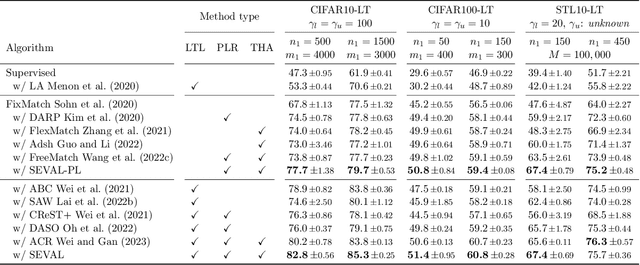
Abstract:Semi-supervised learning (SSL) algorithms struggle to perform well when exposed to imbalanced training data. In this scenario, the generated pseudo-labels can exhibit a bias towards the majority class, and models that employ these pseudo-labels can further amplify this bias. Here we investigate pseudo-labeling strategies for imbalanced SSL including pseudo-label refinement and threshold adjustment, through the lens of statistical analysis. We find that existing SSL algorithms which generate pseudo-labels using heuristic strategies or uncalibrated model confidence are unreliable when imbalanced class distributions bias pseudo-labels. To address this, we introduce SEmi-supervised learning with pseudo-label optimization based on VALidation data (SEVAL) to enhance the quality of pseudo-labelling for imbalanced SSL. We propose to learn refinement and thresholding parameters from a partition of the training dataset in a class-balanced way. SEVAL adapts to specific tasks with improved pseudo-labels accuracy and ensures pseudo-labels correctness on a per-class basis. Our experiments show that SEVAL surpasses state-of-the-art SSL methods, delivering more accurate and effective pseudo-labels in various imbalanced SSL situations. SEVAL, with its simplicity and flexibility, can enhance various SSL techniques effectively. The code is publicly available~\footnote{\url{https://github.com/ZerojumpLine/SEVAL}}.
Constrained self-supervised method with temporal ensembling for fiber bundle detection on anatomic tracing data
Aug 06, 2022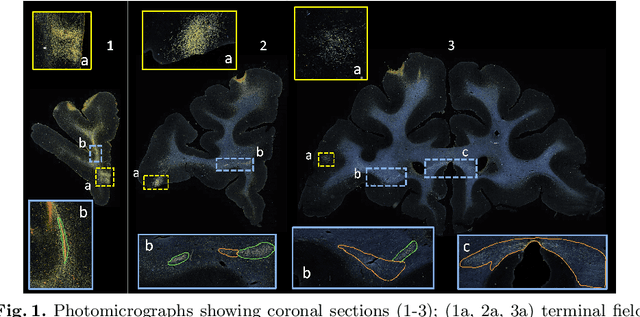

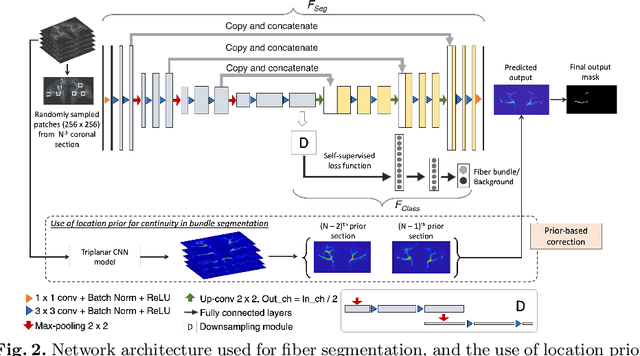

Abstract:Anatomic tracing data provides detailed information on brain circuitry essential for addressing some of the common errors in diffusion MRI tractography. However, automated detection of fiber bundles on tracing data is challenging due to sectioning distortions, presence of noise and artifacts and intensity/contrast variations. In this work, we propose a deep learning method with a self-supervised loss function that takes anatomy-based constraints into account for accurate segmentation of fiber bundles on the tracer sections from macaque brains. Also, given the limited availability of manual labels, we use a semi-supervised training technique for efficiently using unlabeled data to improve the performance, and location constraints for further reduction of false positives. Evaluation of our method on unseen sections from a different macaque yields promising results with a true positive rate of ~0.90. The code for our method is available at https://github.com/v-sundaresan/fiberbundle_seg_tracing.
 Add to Chrome
Add to Chrome Add to Firefox
Add to Firefox Add to Edge
Add to Edge